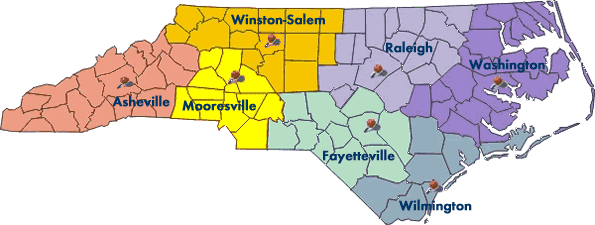All over the country, people are burdened by harmful industry practices. Water and air pollution, noise, odor, and truck traffic are some of the impacts, which can not only harm the environment but cause health problems, disease, and significantly lower quality of life.
It is our belief that every community should have the opportunity to be well-informed about the impacts of the industries who are proposed or currently located in their back yards. These neighbors should have a fair opportunity to let their voices be heard and to have governing bodies give weight to their concerns over the profits and power of big companies.



Our strategies to support community members who are impacted by polluters are:
- Reviewing scientific literature on health and environmental impacts as well as policy and legislation that impacts communities
- Data collection through staff and community partnerships
- Keeping apprised of incoming permits and opportunities for public participation and sharing that information as we have it
- Contacting impacted community members, listening to concerns, sharing information and research, and asking questions, offering support, and encouraging community members take the lead
- Creating fact sheets and how-to’s for publicly available Community Tools (see more below or link), providing technical comments and information sheets for public meetings, providing contact information for appropriate municipal, state, or federal personnel.
Learn more about our ongoing Polluter Accountability efforts in NC by checking out our current campaigns:
Community members living near industrial concentrated animal feeding operations (CAFOs), along with the workers employed by meat processing facilities, face the brunt of the health and environmental impacts posed by factory farming. CWFNC collaborates with other organizations and community members to build a more equitable, environmentally sound animal agriculture system in NC.
Fracking & Fracked Gas Pipelines
In collaboration with ally organizations and community members across the Southeastern US, we work towards public education of and resistance to the building of unnecessary, costly fracked gas pipelines, which promise jobs and economic development, but threaten health, safety, and land use.
Clean Water for NC believes the storage and disposal and cleanup of coal ash waste is an environmental justice issue, often impacting communities already suffering impacts from other types of pollution. We are committed to working with these communities to organize for solutions to coal ash injustice.
Hold polluters accountable in YOUR neighborhood
Visit our Community Tools Campaign for maps, search engines, and other web tools that can help you learn more about your local environment and its potential sources of pollution. Also check out the CWFNC fact sheets and tutorial videos for instructions and additional resources!
Contact your local DEQ office with concerns about pollution and impacts from industry. NC Department of Environmental Quality Regional Offices:

| Asheville Regional Office 2090 U.S. Hwy. 70 Swannanoa, NC 28778 828-296-4500 | Raleigh Regional Office 3800 Barrett Dr. Raleigh, NC 27611 919-791-4200 | Wilmington Regional Office 127 Cardinal Drive Extension Wilmington, NC 28405 910-796-7215 FAX 910-350-2004 |
| Fayetteville Regional Office Systel Building, 225 Green St., Suite 714 Fayetteville, NC 28301-5094 910-433-3300 | Washington Regional Office 943 Washington Square Mall Washington, NC 27889 252-946-6481 | Winston Salem Regional Office 450 West Hanes Mill Road, Suite 300 Winston-Salem, NC 27105 336-776-9800 |
| Mooresville Regional Office 610 East Center Ave. Mooresville, NC 28115 704-663-1699 |


